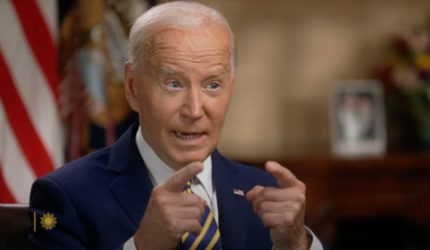In a groundbreaking exercise of presidential authority, U.S. President Joe Biden has issued pardons to 39 Americans convicted of non-violent crimes and commuted the sentences of nearly 1,500 others. This marks the highest number of clemency actions in a single day by any U.S. president. Among those whose sentences were commuted were individuals convicted of multi-million-dollar fraud schemes, reflecting the administration’s focus on justice reform.
The White House emphasized that these actions were granted to individuals who demonstrated “successful rehabilitation and a commitment to making their communities stronger and safer.” The clemency reflects Biden’s ongoing effort to address systemic issues in the criminal justice system, particularly those stemming from outdated laws and pandemic-related sentences.
Constitutional Authority and Broaden Context of Presidential Pardons
The US Constitution grants the president broad powers to issue pardons and reprieves, with the specific limitation of cases involving impeachment. Biden’s actions continue a tradition of executive clemency, though he has historically issued fewer pardons compared to recent predecessors.
Previous categorical pardons by Biden include full pardons for simple marijuana possession and pardons for military personnel convicted of offenses based on sexual orientation. The recent clemency action builds upon these earlier efforts to address what the administration sees as overly punitive past legal practices.
Profiles of Clemency Recipients
The individuals pardoned include a diverse group of Americans who committed non-violent offenses. Many of them have since turned their lives around, becoming community leaders, advocates, and role models. For example, one recipient, a 49-year-old Virginia resident, was convicted of a drug offense at 21. After serving his sentence, he pursued higher education, built a successful career in the U.S. military, and dedicated himself to supporting veterans through charitable work.
The list of commuted sentences also highlights efforts to rectify excessive sentencing. Those who were placed in home confinement during the COVID-19 pandemic were among the beneficiaries. Biden described them as individuals who “deserve a second chance” after proving their commitment to rehabilitation and societal contributions.
High-Profile Cases and Controversy
Among the clemency recipients were individuals involved in high-profile financial crimes. These include Timothy McGinn, a former stockbroker convicted of defrauding clients out of millions, and Jimmy Dimora, a former Ohio county commissioner convicted of accepting $450,000 in bribes. Additionally, Paul Daugerdas and Elaine Lovett, both convicted of financial fraud schemes, received clemency.
The decision to pardon his son, Hunter Biden, has drawn criticism, particularly from Republican lawmakers. Hunter Biden, convicted on charges of tax fraud and gun crimes, was described by President Biden as a victim of politically motivated investigations. This move aligns with a broader pattern of U.S. presidents granting clemency to close associates, though it has sparked debates about potential conflicts of interest and misuse of presidential power.
Biden Administration Legacy of Clemency and Future Implications
President Biden’s actions stand in contrast to his earlier record of issuing fewer pardons than many of his predecessors. Notably, in October 2022, Biden pardoned individuals convicted of marijuana-related offenses and later extended clemency to LGBTQ+ military personnel. These categorical pardons underscore Biden administration’s focus on addressing systemic inequities.
As Biden’s term nears its conclusion, speculation grows about potential pre-emptive pardons for individuals targeted by political rivals. Reports suggest Joe is weighing such actions to shield critics of his successor, Donald Trump, from possible retribution. Meanwhile, Trump has pledged to pardon non-violent participants in the January 6 Capitol riot if re-elected, further politicizing the issue of presidential clemency.
This unprecedented wave of clemency highlights the complexities of presidential pardon powers, balancing justice reform with political considerations as Biden seeks to cement his legacy in his final year in office.














